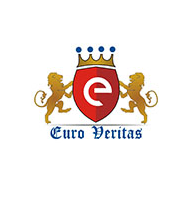 |  |
ISO/IEC 20000 is the first international standard for IT service management. It was developed in 2005, by ISO/IEC JTC1 SC7 and revised in 2011.
It is based on and intended to supersede the earlier BS 15000 that was developed by BSI Group Formally: ISO/IEC 20000-1:2011 ('part 1') includes "the design, transition, delivery and improvement of services that fulfil service requirements and provide value for both the customer and the service provider.This part of ISO/IEC 20000 requires an integrated process approach when the service provider plans, establishes, implements, operates, monitors, review, maintains and improves a service management system (SMS).". The 2011 version (ISO/IEC 20000-1:2011) comprises nine sections:
| Scope | Normative references | Terms and definitions |
| Service management system general requirements | Design and transition of new or changed services | Service delivery processes |
| Relationship processes | Resolution processes | Control processes |
ISO/IEC 20000-2:2012 provides guidance on the application of service management systems (SMS) based on the requirements in ISO/IEC 20000-1:2011.
ISO/IEC TR 20000-3:2009 provides guidance on scope definition, applicability and demonstration of conformance for service providers aiming to meet the requirements of ISO/IEC 20000-1, or for service providers who are planning service improvements and intending to use ISO/IEC 20000 as a business goal. It supplements the advice in ISO/IEC 20000-2, which provides generic guidelines for implementing an SMS in accordance with ISO/IEC 20000-1.
ISO/IEC TR 20000-4:2010 is intended to facilitate the development of a process assessment model according to ISO/IEC 15504 process assessment principles. ISO/IEC 15504-1 describes the concepts and terminology used for process assessment. ISO/IEC 15504-2 describes the requirements for the conduct of an assessment and a measurement scale for assessing process capability.
ISO/IEC TR 20000-5:2010 is an exemplar implementation plan providing guidance to service providers on how to implement a service management system to fulfil the requirements of ISO/IEC 20000-1 or for service providers who are planning service improvements and intending to use ISO/IEC 20000 as a business goal. It could also be useful for those advising service providers on how to best achieve the requirements of ISO/IEC 20000-1.
ISO/IEC 20000, like its BS 15000 predecessor, was originally developed to reflect best practice guidance contained within the ITIL (Information Technology Infrastructure Library) framework, although it equally supports other IT Service Management frameworks and approaches including Microsoft Operations Framework and components of ISACA's COBIT framework.
The standard was first published in December 2005. In June 2011, the ISO/IEC 20000-1:2005 was updated to ISO/IEC 20000-1:2011. In February 2012, ISO/IEC 20000-2:2005 was updated to ISO/IEC 20000-2:2012.
ISO/IEC TR 20000-5:2010 is an exemplar implementation plan providing guidance to service providers on how to implement a service management system to fulfil the requirements of ISO/IEC 20000-1 or for service providers who are planning service improvements and intending to use ISO/IEC 20000 as a business goal. It could also be useful for those advising service providers on how to best achieve the requirements of ISO/IEC 20000-1.
ISO/IEC TR 20000-5:2010 includes advice for service providers on a suitable order in which to plan and implement improvements. It is suggested that a generic three-phase approach is used to implement a service management system. The phased approach provides a structured framework to prioritize and manage the implementation activities.
ISO/IEC TR 20000-5:2010 includes advice on development of a business case, the start up project, and a list of the main activities required to implement ISO/IEC 20000-1 successfully for each phase. It also provides supporting information, advice and guidance that may be useful for the implementation project, including developing objectives, developing policies, document and record management and sample process documentation.
ISO/IEC TR 20000-5:2010 is for guidance only. The service provider has the option of choosing their own implementation sequence to implement a service management system.
ISO/IEC 20000-2:2012 provides guidance on the application of service management systems (SMS) based on the requirements in ISO/IEC 20000-1.
ISO/IEC 20000-2:2012 enables organizations and individuals to interpret ISO/IEC 20000-1 more accurately, and therefore to use it more effectively. The guidance includes examples and suggestions to enable organizations to interpret and apply ISO/IEC 20000-1, including references to other parts of ISO/IEC 20000 and other relevant standards.
This includes guidance on the use of an SMS for the planning, design, transition, delivery and improvement of the SMS and services. At a minimum this includes service management policies, objectives, plans, service management processes, process interfaces, documentation and resources. The SMS provides ongoing control, greater effectiveness, efficiency and opportunities for continual improvement of service management and of services. It enables an organization to work effectively with a shared vision.
At Euro Veritas Ltd, we can help you take your policies a step further. We offer clients: An audit process conducted by experts in the given field.
Certification awarded by an International Certification Committee comprising senior experts, independent of the audit process itself and with a high level of appreciation of international best practice, also competent on the basis of Qualification. Recommendation for continual improvement of both policy and its implementation.